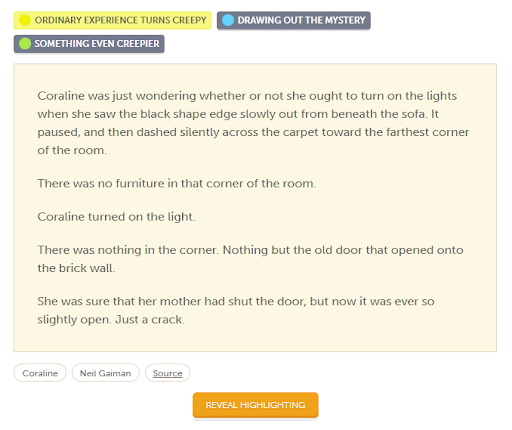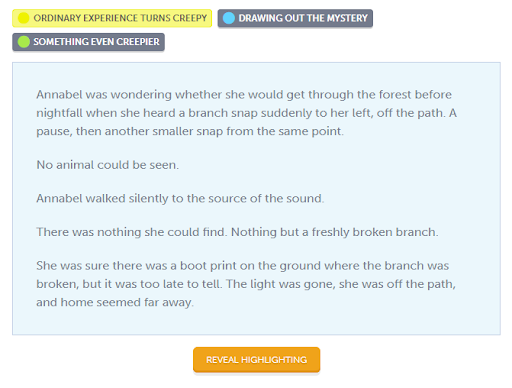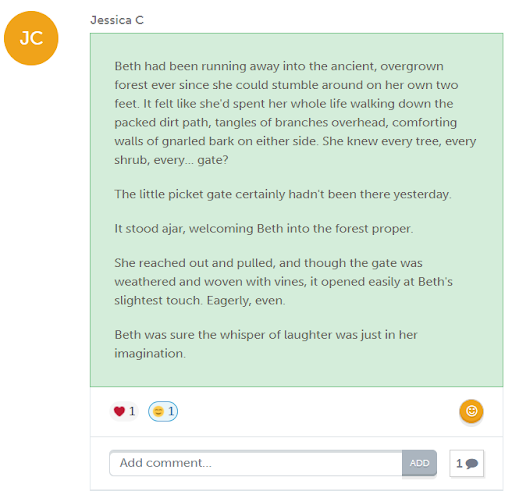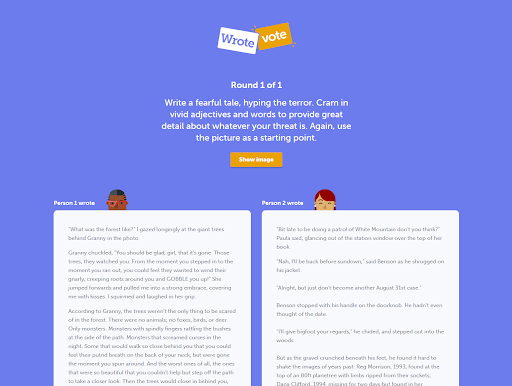Continuing the fun of the Genre Mix lessons, we've added a series of Genre Pack lessons for Middle Years students.
Accessible, constructive and with immediate payoff, each lesson continues the remix style of quickfire mimicking of specific voices.
The new additions focus on a variety of writing styles and devices within a genre, including:
- Sci-fi Genre (Middle Years)
- Everyday Life Genre (Middle Years)
- Horror Genre (Middle Years)
- Comedy Genre (Middle Years)
- Memoir Genre (Middle Years)
While we know there's no specific genre called 'Everyday life', we wanted to celebrate realistic fiction such as Wonder and Stargirl, so we've used it as a blanket term for those stories.
The Remix lesson format
In each Remix lesson we provide a single inspiration image. For example, in Horror Genre (Middle Years) we use this:
We then provide five snippets in distinctive styles, such as:
- Understated
- Overstated
- In the protagonist’s head
- Entering a dark place
- Action horror
Each snippet comes with instructions that highlight key patterns. The Genre Remix lessons may also include a little background information on the style or devices used in the snippet and why it’s used in that genre.
We provide a worked example applying the pattern to the inspiration image.
Finally, students write their own version, which appears in a group feed so everyone in the class can read and react, either by commenting in the feed, or through a group Wrotevote session.
What we’ve heard from pilot students
Feedback so far has been that these lessons are fun and encourage friendly competition, and the quality of work in our test sessions has been very high.
There’s also a clear benefit in writing multiple text types using the same source image. Students have observed they learn more about each text type from the contrast between them.
How to use Remix lessons in class
Each Remix lesson is short and sweet, with five activities.
Depending on how much effort students put in, each activity takes 10-20 minutes, with a whole lesson taking 45-90 minutes to complete. However, we’ve found that asking students to write at home and then using class time to review entries in the feed as a group works very well.









